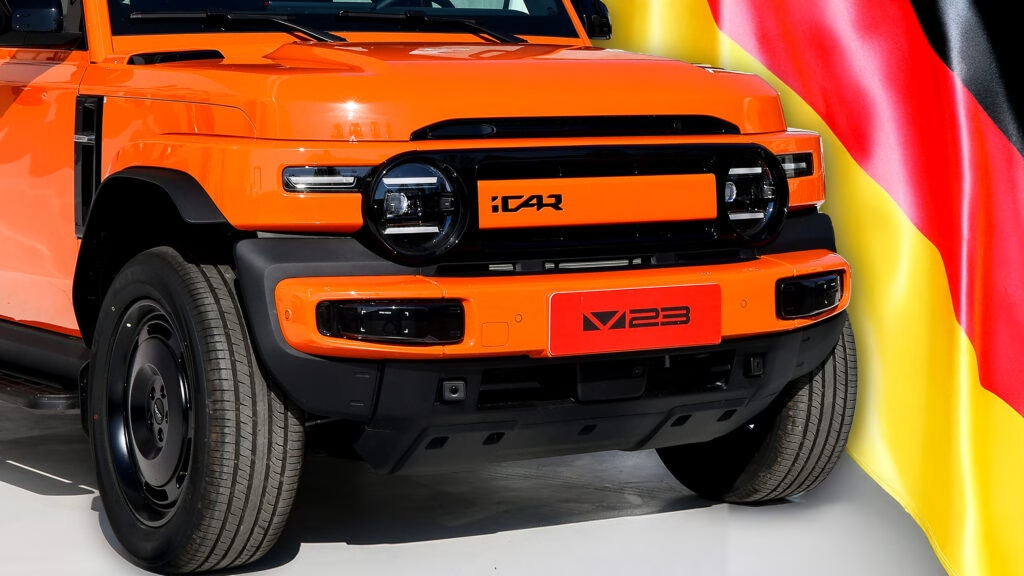Chery, one of China’s largest automakers, is making significant strides in expanding its footprint in Europe, particularly in Germany, a country renowned for its automotive prowess. With a reported sale of over 2.6 million vehicles globally in 2024, Chery is not just a player in the Chinese market; it’s setting its sights on becoming a formidable competitor in Europe.
Why is Chery Focusing on Germany?
Germany has long been the heart of the European automotive industry, home to major brands like Volkswagen, BMW, and Mercedes-Benz. As Chery looks to broaden its market reach, acquiring established manufacturing facilities in Germany could provide a strategic advantage. Currently, Chery is in advanced discussions to purchase two Volkswagen plants in Dresden and Osnabruck, both of which are slated for closure due to VW’s cost-cutting measures. This move could allow Chery to tap into local production capabilities, significantly reducing shipping costs and tariffs associated with importing vehicles from China.
Navigating Complexities in the German Market
Charlie Zhang, Chery’s Vice President for International Operations, has acknowledged the complexities involved in establishing a manufacturing presence in Germany. The company is diligently studying regulatory requirements, labor union dynamics, and supply chain logistics. This thorough approach is crucial, as the European market has stringent standards for vehicle emissions and safety, not to mention the competitive landscape dominated by established brands.
Chery’s New Brand and Product Offerings
If the deal goes through, Chery plans to manufacture vehicles under its newly launched Lepas brand, which debuted just a few weeks ago. This brand will focus on modified versions of Chery’s existing Tiggo range, with plans to introduce two compact SUVs and one midsize SUV. These models will be available with various powertrains, including traditional combustion engines, plug-in hybrids, and fully electric options. This diversification aligns with the growing demand for eco-friendly vehicles in Europe, where consumers are increasingly leaning towards sustainable transportation solutions.
Expanding Production Across Europe
Chery isn’t just stopping at Germany. The company has already established a presence in Spain, where it has been assembling cars at a former Nissan factory in Barcelona since 2024. This facility is set for upgrades to boost production of hybrid and electric models, including those from the Omoda and Jaecoo brands. By spreading its production across multiple sites in Europe, Chery is not only positioning itself to sidestep trade barriers but also tailoring its offerings to meet local market demands more effectively.
The Competitive Landscape
As Chery enters the European market, it faces stiff competition not only from established European brands but also from other Chinese automakers eager to make their mark. The European Union has implemented tariffs on Chinese electric vehicles, making local production a strategic necessity for companies like Chery. By establishing manufacturing plants in Europe, Chery can avoid these tariffs and respond more swiftly to consumer preferences.
What’s Next for Chery?
As negotiations progress, the automotive world will be watching closely. The outcome could reshape the competitive dynamics in the European market, especially as consumers increasingly seek alternatives to traditional European brands. Chery’s commitment to local production and its focus on electric and hybrid vehicles could resonate well with European consumers, who are becoming more environmentally conscious.
The big takeaway? Chery’s expansion into Europe isn’t just about selling cars; it’s about building a brand that resonates with local values and preferences. By making strategic adjustments and focusing on sustainability, Chery is poised to carve out a significant niche in the European automotive landscape. If you’re curious about how this will unfold, keep an eye on the developments in the coming months—there’s a lot more to come!

